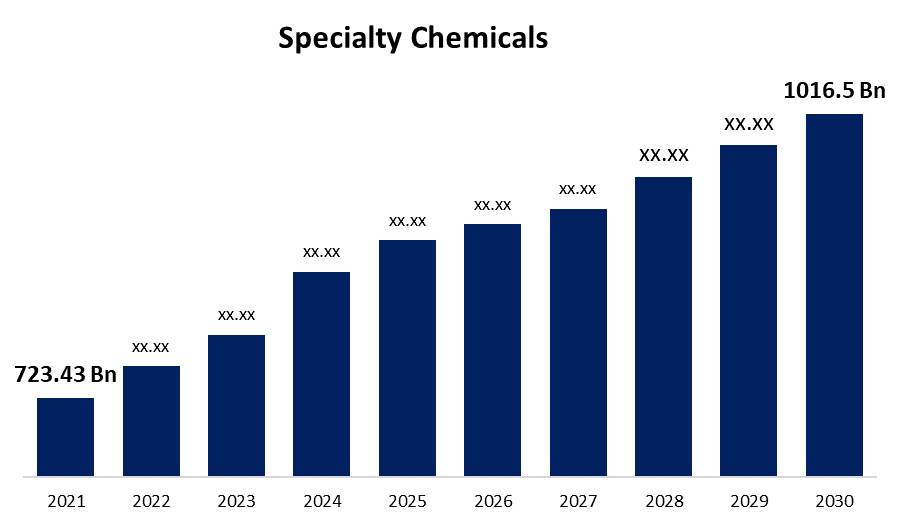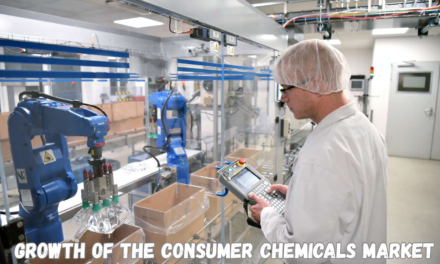The specialty chemicals sector is poised for significant growth in the next 5-10 years due to evolving consumer demands, technological advancements, and shifts in environmental and regulatory landscapes. Here are some key growth areas in this sector:
1. Sustainability and Green Chemistry
- Why it’s Growing: Growing environmental awareness and the increasing need for sustainable products are driving the demand for greener solutions.
- Key Developments:
- Biodegradable chemicals: Increased demand for biodegradable surfactants, plastics, and coatings that reduce environmental impact.
- Green solvents: Replacement of toxic solvents with more eco-friendly alternatives, especially in industries like coatings, adhesives, and cleaning products.
- Renewable feedstocks: Use of bio-based feedstocks to manufacture specialty chemicals rather than fossil-based raw materials.
- Circular economy: Development of chemical recycling technologies and the push for materials that can be reused or recycled.
2. Advanced Materials and High-Performance Polymers
- Why it’s Growing: The demand for high-performance materials in industries such as automotive, aerospace, and electronics is rapidly increasing, particularly for lightweight, durable, and high-strength materials.
- Key Developments:
- Lightweight materials: The rise of electric vehicles (EVs) and fuel-efficient cars is driving the demand for lightweight composites and polymers (e.g., carbon fiber, advanced thermoplastics).
- Conductive and flexible polymers: Used in advanced electronics, wearable devices, and smart packaging.
- Smart materials: Materials that respond to external stimuli (e.g., temperature, pressure, or light) are gaining traction in applications such as sensors, robotics, and medical devices.
3. Personal Care and Cosmetics Innovations
- Why it’s Growing: The global demand for personal care and cosmetic products continues to increase, driven by changing consumer preferences for natural, effective, and sustainable ingredients.
- Key Developments:
- Natural and organic ingredients: A growing trend toward plant-based, cruelty-free, and non-toxic personal care products.
- Anti-aging and skin care: Increased demand for advanced skin care formulations, particularly those focused on anti-aging, hydration, and UV protection.
- Clean beauty: Chemical-free, minimalistic formulations that exclude harmful additives and preservatives are becoming a focal point for brands.
4. Electronics and Semiconductor Materials
- Why it’s Growing: The ongoing digital transformation and the rise of smart devices, 5G, and IoT (Internet of Things) are creating new opportunities for specialty chemicals in electronics manufacturing.
- Key Developments:
- Semiconductor chemicals: High-purity chemicals used in the manufacturing of semiconductors, including photoresists, etchants, and dielectric materials.
- Advanced coatings and conductive inks: Materials for flexible electronics, printed circuit boards (PCBs), OLED displays, and wearable electronics.
- Battery chemicals: The demand for specialty chemicals for advanced battery technologies, especially in electric vehicles and energy storage systems.
5. Health and Wellness
- Why it’s Growing: Increasing global healthcare needs, aging populations, and advancements in medical technologies are expanding the use of specialty chemicals in pharmaceuticals, medical devices, and diagnostics.
- Key Developments:
- Pharmaceuticals and active ingredients: Growth in personalized medicine, biologics, and targeted therapies is driving demand for specialty chemicals in drug manufacturing.
- Medical coatings: Antimicrobial and biocompatible coatings for medical devices such as catheters, stents, and surgical instruments.
- Diagnostic chemicals: Specialty chemicals used in diagnostic tests, including reagents, probes, and diagnostic kits.
6. Agricultural Chemicals and Agrochemicals
- Why it’s Growing: The need to improve agricultural productivity, food security, and sustainable farming practices is driving the demand for advanced agrochemical solutions.
- Key Developments:
- Biopesticides and biofertilizers: The growth of organic farming and demand for sustainable pest control solutions is fueling the expansion of natural and biological alternatives to traditional chemicals.
- Crop protection: Development of more effective herbicides, fungicides, and insecticides with lower environmental impact.
- Precision agriculture: The use of data-driven, high-tech solutions to optimize the use of water, fertilizers, and pesticides in agriculture.
7. Energy Transition and Clean Energy
- Why it’s Growing: The shift towards clean energy and reducing carbon emissions is creating new opportunities for specialty chemicals in energy storage, renewable energy production, and energy efficiency technologies.
- Key Developments:
- Battery materials: The growth of electric vehicles (EVs) and renewable energy storage systems (e.g., lithium-ion and solid-state batteries) is creating a demand for specialty chemicals in battery production, including electrolytes, separators, and cathodes.
- Hydrogen economy: Specialty chemicals used in hydrogen production, storage, and fuel cells are growing with the development of hydrogen as a clean energy source.
- Carbon capture: Chemical solutions for capturing and storing carbon dioxide to mitigate climate change are becoming more important.
8. Food and Beverage Ingredients
- Why it’s Growing: Rising consumer demand for healthier, more natural, and sustainable food products is driving innovation in food chemistry.
- Key Developments:
- Natural food preservatives: Growing interest in natural and clean-label preservatives, antioxidants, and antimicrobials for food safety and shelf-life extension.
- Functional foods: Specialty chemicals used in the formulation of functional foods and supplements that offer health benefits beyond basic nutrition (e.g., probiotics, vitamins, and plant-based proteins).
- Plant-based and alternative proteins: As plant-based diets gain popularity, there’s a surge in specialty chemicals used in creating plant-based meat substitutes and dairy alternatives.
9. Water Treatment and Wastewater Management
- Why it’s Growing: The need for clean water and sustainable wastewater management practices is increasing globally, especially in regions facing water scarcity.
- Key Developments:
- Water purification chemicals: Growing demand for chemicals that help purify and treat water, including flocculants, disinfectants, and coagulants.
- Desalination chemicals: As fresh water supplies are limited in many parts of the world, desalination technologies are growing, creating demand for chemicals that aid in the desalination process.
- Wastewater treatment: Advanced chemicals that improve the treatment of industrial, municipal, and agricultural wastewater.
10. Automotive and Transportation Innovations
- Why it’s Growing: The transformation of the automotive industry, including the shift towards electric vehicles (EVs) and autonomous driving, is spurring the demand for advanced materials and chemicals.
- Key Developments:
- Battery and energy storage materials: Increased demand for specialized chemicals used in the manufacturing of high-performance EV batteries.
- Advanced coatings and adhesives: Used for automotive lightweighting, corrosion resistance, and improved safety features.
- Sustainable materials: Specialty chemicals used in producing eco-friendly and recyclable automotive parts and components.










